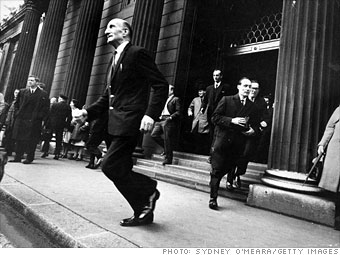
Otto and Augustus Heinze's attempt to corner the stock of United Copper Company triggered the Panic of 1907. The brothers believed they held a majority stake in United Copper and that a decline in the company's stock price had been caused by short sellers rather than the faltering economy.
The Heinze brothers launched Operation Bear Squeeze: an aggressive buy of all United Copper shares at any price, hoping to force shorts to negotiate a special settlement at a lofty profit.
On October 14, 1907, they drove the share price from $39 to $60 in the first 15 minutes of trading on the Curb Market (today's American Stock Exchange). Unfortunately, Otto misread the market and his ability to corner it. Two days later, United Copper's shares tumbled to a catastrophic $10. The Heinze brothers had insufficient capital or credit to honor all the purchases they had made.
Depositors, fearing insufficient firewalls between the Heinzes' dual management roles in both the copper business and the banking industry, made a run on the banks that they controlled. Panic spread, and any bank with significant business ties to the Heinzes saw their clients rush for the exits. The brothers and their friends were ruined. And the economy was bailed out, as it had been in 1893, by J.P. Morgan.
NEXT: The Hunt brothers and silver
